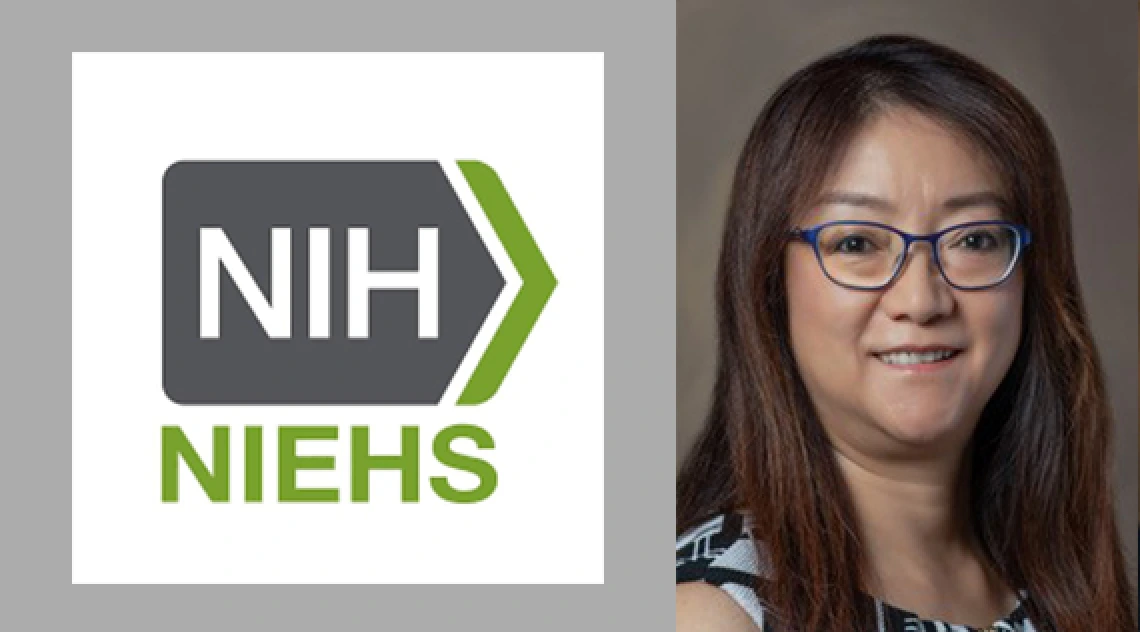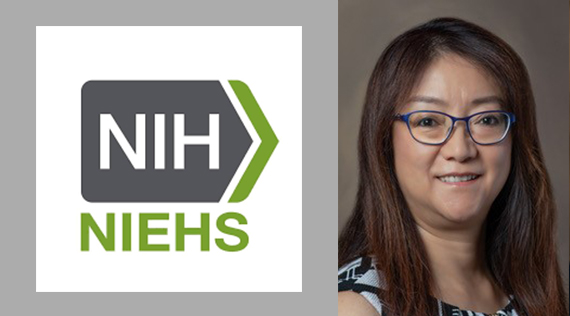Dr. Donna D Zhang Receives 8-year, $7.32 M Grant for studying gene and environment interactions

 Dr. Donna D Zhang, Associate Director of University of Arizona Superfund Research Center (UA SRC), Musil Family Endowed Chair in Drug Discovery, and Professor of Pharmacology and Toxicology department, was awarded an eight-year grant from the National Institute of Environmental Health Sciences (NIEHS) Revolutionizing Innovative, Visionary Environmental Health Research (RIVER) Program (R35 ES031575-01) with a total budget of $7.32 million for her project, “NRF Transcription Factors in Environmental Stress and Disease Intervention.”
Dr. Donna D Zhang, Associate Director of University of Arizona Superfund Research Center (UA SRC), Musil Family Endowed Chair in Drug Discovery, and Professor of Pharmacology and Toxicology department, was awarded an eight-year grant from the National Institute of Environmental Health Sciences (NIEHS) Revolutionizing Innovative, Visionary Environmental Health Research (RIVER) Program (R35 ES031575-01) with a total budget of $7.32 million for her project, “NRF Transcription Factors in Environmental Stress and Disease Intervention.”
The NIEHS RIVER Program (R35) provides support for outstanding investigators in the Environmental Health Sciences, giving them intellectual and administrative freedom, as well as sustained support to pursue their research in novel directions in order to achieve greater impacts. The program seeks to identify individuals, regardless of career stage, with a potential for continued innovative and impactful research and combine their existing investigator-initiated research into a single award to support the majority of their independent environmental health sciences research program.
Dr. Zhang’s research will focus on gene (NRF) and environment (arsenic) interaction. Exposure to arsenic affects 160 million people worldwide, increasing the risk of developing cancer and diabetes. Dr. Zhang studies how arsenic induces diseases, with the goal of identifying new pharmaceuticals to prevent or treat adverse health effects resulting from arsenic exposure. Using the current NRF2-based drug development as a guide, Dr. Zhang’s lab researches how NRF2 controls key aspects of the cell’s defense system by maintaining cellular redox and metabolic balance. NRF2 activation protects against acute toxicity and disease development induced by exposure to environmental toxicants, including arsenic.
However, Dr. Zhang also discovered a “dark side” of NRF2: constant activation of NRF2 can drive cancer progression, metastasis, and resistance to therapy, as well as promote a pro-diabetic shift in metabolism, all of which occur following chronic, low-dose arsenic exposure.
The goals of Dr. Zhang’s project, now, are to characterize the molecular bases of diseases associated with arsenic exposure, and to identify ways in which NRF2, as well as the other NRF protein family members (NRF1 and NRF3), can be effectively harnessed to prevent or treat arsenic-induced lung cancer and Type II diabetes.
Dr. Zhang said, “I am very grateful for NIEHS’s recognization of my leadership in the NRF2 field and my seminal contributions to environmental toxicology. Achieveing the goals of this R35, in-depth mechanistic investigations of arsenic pathogenesis, NRF1/2/3 signaling, and the translation of this basic mechanistic knowledge into new therapies, will impact human health significantly”.
Please join us in congratulating Dr. Donna D Zhang for her success!

